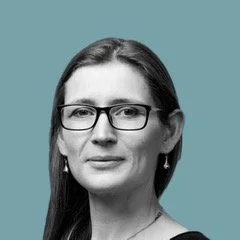We currently enjoy an era in which we reap the fruits of progress: feminism has triumphed over systemic oppression by men; technology is increasingly liberating us from meaningless chores toward a future of unprecedented possibilities for human flourishing. Or so we are often told. What, however, is progress? What do we mean by feminism? And what are the anthropological assumptions that underlie our confidence in technology? What place, if any, is there for religion in this narrative of progress?
Mary Harrington has emerged as one of the most illuminating, analytical voices among the current critical responses to these vital questions. In this lecture, she will summarize her lived response to these questions as put forward in Feminism against Progress. In this book, she argues that we don’t have to see feminism as part of a relentless upward moral trajectory. Instead, feminism can also be understood as women’s cultural and political response to the transformation of our intimate lives, throughout the industrial era. As the industrial age recedes in the rear-view mirror, however, and we plunge ever deeper into the cyborg era, we’re importing destructive values and ideals under the guise of ‘feminism’ that no longer serve women’s interests. We can reverse this dystopian trajectory, but only if we set down some of our most cherished disputes and most entrenched ideologies. Only then will women and men re-learn to live together.
In this lecture, Harrington will recount her intellectual journey that took her from losing faith in progress, through rethinking feminism as fundamentally a story about technology, all the way to the importance of theology for defining human identity in a digital age. Anyone interested in a lively, trenchant, and wise engagement of contemporary culture should benefit from this lecture.
This lecture will be held at Ponderosa Commons Hall & Ballroom (6445 University Boulevard, Vancouver, BC) from 6:30 PM to 8:30 PM. As on previous occasions, we will host a pre-lecture reception featuring appetizers, charcuterie, and pastries from 5:30 PM to 6:30 PM. RSVP recommended by emailing houstoncentre@regent-college.edu.
In addition, it will be recorded and subsequently posted on our YouTube channel and on the Recorded Lectures section of our website.
About the Speaker:
Mary Harrington
Mary Harrington “fell into writing by accident, after two decades of adult life in which I tried every avenue, I could think of to avoid it.” Aside from earning a degree in English Literature from Oxford University, she has been a janitor, a communard, a marketing executive, an internet founder, and a psychotherapist, and a stay-at-home mom. She is a contributing editor at UnHerd (UK), and her work has appeared in the London Times, the Telegraph, the New York Times, the Wall Street Journal, the Mail on Sunday, and First Things among many others. She also runs the popular Reactionary Feminist on Substack.

